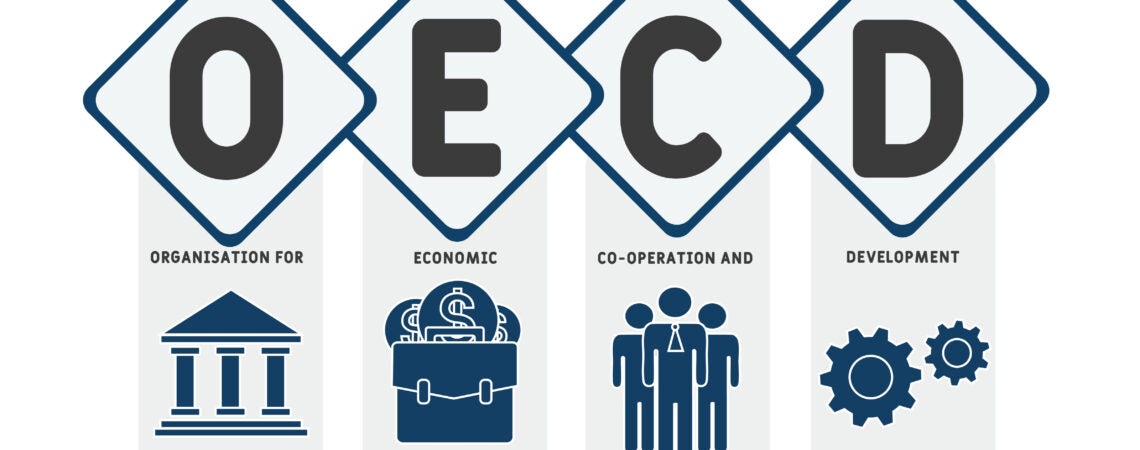September 30th, 2021, marks the 60th anniversary of the creation of the OECD—the Organization for Economic Cooperation and Development. The organization was the post-WWII flagbearer for market economics, offering a positive vision of the benefits of cooperation among market democracies. By emphasizing analytical expertise to find pathways to policy alignment, the OECD achieved success and helped define the character of post-war liberal political systems in competition with authoritarian statism. Today, market economies are struggling to agree on a competition model with non-market statecraft again. Rather than invent a new institution, they should take a fresh look at this existing one.
After a period of unilateralism, the US is again promoting international cooperation to address shared concerns. This will not always be the case, as the contretemps over submarine sales to Australia made painfully clear. But the return to market economy teamwork is real, and it comes at a crucial moment: advanced economies are dealing with questions that require active coordination. How to deal with non-market or authoritarian business partners? How to craft data policy, competition policy, investment screening, and other policy areas at the intersection of economic and national security?
Most importantly, what forum should market nations use to cooperate on these issues? The big-tent multinational organizations such as the World Bank, WTO, UNCTAD, and IMF each have important roles. But their inclusiveness has drawbacks too, particularly when members have fundamentally different views over the merits of market mechanisms versus state planning and economic authoritarianism. A few business associations – notably Germany’s admirable BDI – have moved out front to get their members thinking proactively, but most trade groups are keeping their heads down, waiting for national leaders to set the tune.
Daniel H. Rosen is a Partner at Rhodium Group and leads the firm’s work on China, India and Asia.
Agatha Kratz is a Director at Rhodium Group. She heads Rhodium’s China corporate advisory team, as well as Rhodium’s researcg on European Union-China relations and China’s economic statecraft.
Charlie Vest is a Senior Analyst on Rhodium Group’s corporate advisory team.
Lauren Dudley is a Research Analyst at Rhodium Group focusing on geopolitical competition with China.
An_OECD_for_a_New_EraTo read the full report by the Rhodium Group, please click here.

